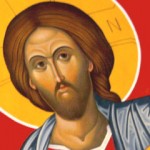“[D]o nothing apart from the bishop. . . .”
— Ignatius of Antioch, Magnesians 7
One of the more intriguing narratives flowing out of the election concerns Roman Catholics bucking their bishops’ entreaties — some would say threats — to abstain from voting for candidates who support abortion and the HHS contraception mandate.
Regardless of the directive, a majority of Catholics punched the Obama/Biden ticket on November 6, acting as if the episcopal counsel counted for squat. This strikes me as an interesting development, demonstrating a significant breakdown in church authority. Apparently, we’re all Protestants now — each man his own magisterium, each person his own pope.
On Election Day, Archbishop Charles Chaput wrote about the importance of the contest and the gravity of the choice facing the faithful. “[E]lections are tough times for serious Catholics,” he wrote. “If we believe in the encyclical tradition — from Rerum Novarum to Evangelium Vitae; from Humanae Vitae to Caritas In Veritate — then we can’t settle comfortably in either political party.” Apparently it wasn’t that tough after all. Either the assumption proved wrong just hours after he wrote it, or the majority of Catholics aren’t “serious.” Either option bodes ill.
It’s not my intention to talk politics so much as point to something happening in our culture. It seems to me that individualism has become something of a universal solvent, corroding norms and institutions, including the church.
Chaput’s observation was couched in a larger argument about the aftereffects of the Reformation, and it’s worth reading closely.
The Protestant rejection of church authority stemmed primarily from the doctrine of sola scriptura, the idea that the Bible beats bishops when it comes to questions of doctrine and life.
Appealing to sola scriptura, Protestants dispensed with most of the church hierarchy and sacraments, scholasticism and the pre-scholastic patristic tradition. While simultaneously misunderstanding the role of tradition (in large measure because of Roman abuses of it), they jettisoned most aspects of it they couldn’t find in the two testaments, including those parts of the first testament they regarded as “Apocrypha” (though, curiously, some inexplicit things like Trinitarianism and Sunday worship were nonetheless retained, though there is no biblical warrant for them).
The problem is that if each individual or group of individuals is free to determine what stays and what goes, they will invariably arrive at differing — even mutually exclusive — lists. This is exactly what happened subsequent to Luther’s hammer strikes in Wittenberg. Hence the multitudinous Protestant denominations, churches, and roaming free agents.
“Sola scriptura changed everything for Western Christendom,” said Chaput. “The Church became the churches, and the process inadvertently, but relentlessly, fueled individual sovereignty and relativism.”
That individualistic ethic has cut its way thorough all of Western life, affecting more than questions of Christian doctrine. It now affects virtually all moral considerations, family dynamics, social norms, basically everything, all the way up and down the chain. No wonder Alister McGrath called it “Christianity’s dangerous idea,” alongside which term it is useful to employ C.S. Lewis’ phrase, “the poison of subjectivism.” And it affects Catholics now as well as Protestants.
The pre-Kennedy concern in American politics was that Catholics would support Rome instead of Washington. Rest easy. If it wasn’t evident before, the Election of 2012 showed that disregarding the authority of the church is no longer a worry for American Catholics.
This is only the beginning. If the influence of the bishops wanes in one area, why not others? Disregarded sociopolitical direction will soon seem like nothing when the faithful start choosing which doctrines they will or will not countenance. For Americans this is particularly likely, as we are a people who offer a notorious shrug of the shoulders to most theological concerns. Protestants have never solved this problem, and now it seems likely Catholics must deal with it as well, if not soon, then eventually. Authority means little if unheeded.
I wonder if Luther saw how deep that nail would pierce.













